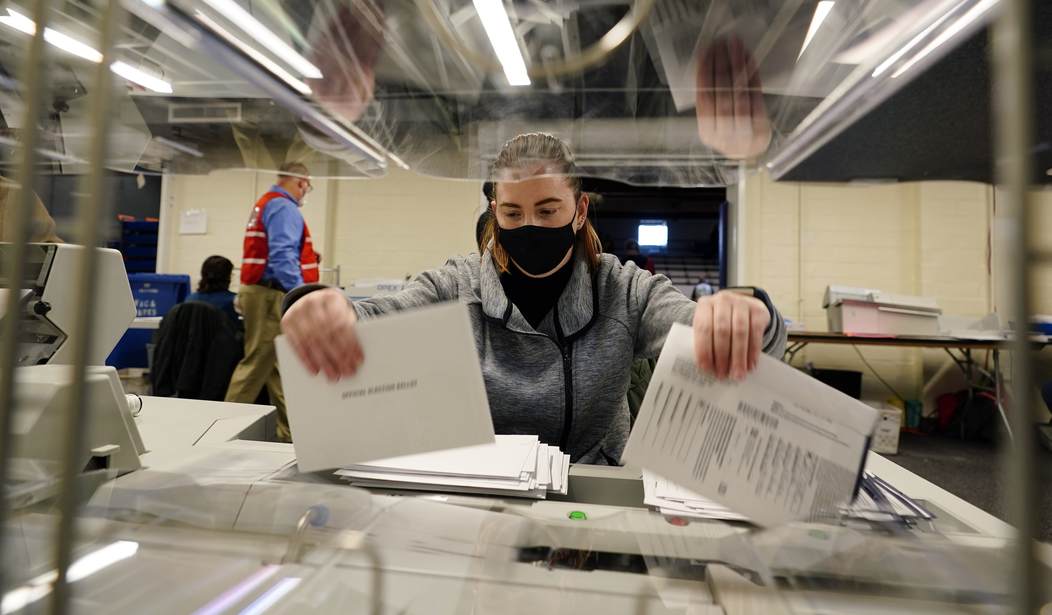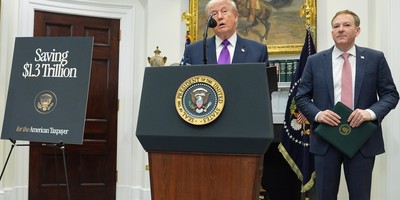Democrats on the Pennsylvania Supreme Court handed down a unanimous decision on Saturday night, dismissing a suit brought by Rep. Mike Kelly (R-PN) and a handful of other GOP candidates challenging what they consider to be unlawful changes made to absentee ballot requirements stipulated by the state constitution. The ruling overturns a lower court's order preventing Pennsylvania from certifying election results following the Nov. 3 election.
On Wednesday, judge Patricia McCullough ordered the state to halt certification of election results a day after Joe Biden was certified the winner in the Keystone State.
"[T]o the extent that there remains any further action to perfect the certification of the results of the 2020 General Election … for the office of President and Vice President of the United States of America, Respondents are preliminarily enjoined from doing so, pending an evidentiary hearing," McCullough wrote.
In dismissing the suit on Saturday, the Pennsylvania justices invoked the old legal doctrine of "laches," finding Rep. Kelly and the other GOP candidates failed in their duty to file the suit in a timely manner.
(Via Fox News)
Pennsylvania passed universal mail-in voting last year with Act 77, but Kelly sought to overturn that law and deem all mail-in votes in the 2020 election illegal.
"As a remedy, Petitioners sought to invalidate the ballots of the millions of Pennsylvania voters who utilized the mail-in voting procedures established by Act 77 and count only those ballots that Petitioners deem to be 'legal votes,'" the opinion from the Pennsylvania Supreme Court reads.
The court went on to say that petitioners should have challenged the law when it was first passed in 2019, instead of waiting until the election was over a year later.
“Petitioners filed this facial challenge to the mail-in voting statutory provisions more than one year after the enactment of Act 77. At the time this action was filed on November 21, 2020, millions of Pennsylvania voters had already expressed their will in both the June 2020 Primary Election and the November 2020 General Election and the final ballots in the 2020 General Election were being tallied, with the results becoming seemingly apparent," the opinion from the Pennsylvania Supreme Court reads.
"Nevertheless, Petitioners waited to commence this litigation until days before the county boards of election were required to certify the election results to the Secretary of the Commonwealth. Thus, it is beyond cavil that Petitioners failed to act with due diligence in presenting the instant claim. Equally clear is the substantial prejudice arising from Petitioners’ failure to institute promptly a facial challenge to the mail-in voting statutory scheme, as such inaction would result in the disenfranchisement of millions of Pennsylvania voters.”
Recommended
Critics accused the Pennsylvania justices of playing politics, noting that if Kelly had filed the suit any sooner, before suffering an injury-in-fact, the court would have likely thrown out the case on the grounds that there was no injury.
Democrats celebrated the court's decision, but the case is expected to be appealed to the U.S. Supreme Court.
It’s not over.
— Sean Parnell (@SeanParnellUSA) November 28, 2020
This was not unexpected.
Stay tuned. https://t.co/1H3M0UVnMi

























Join the conversation as a VIP Member